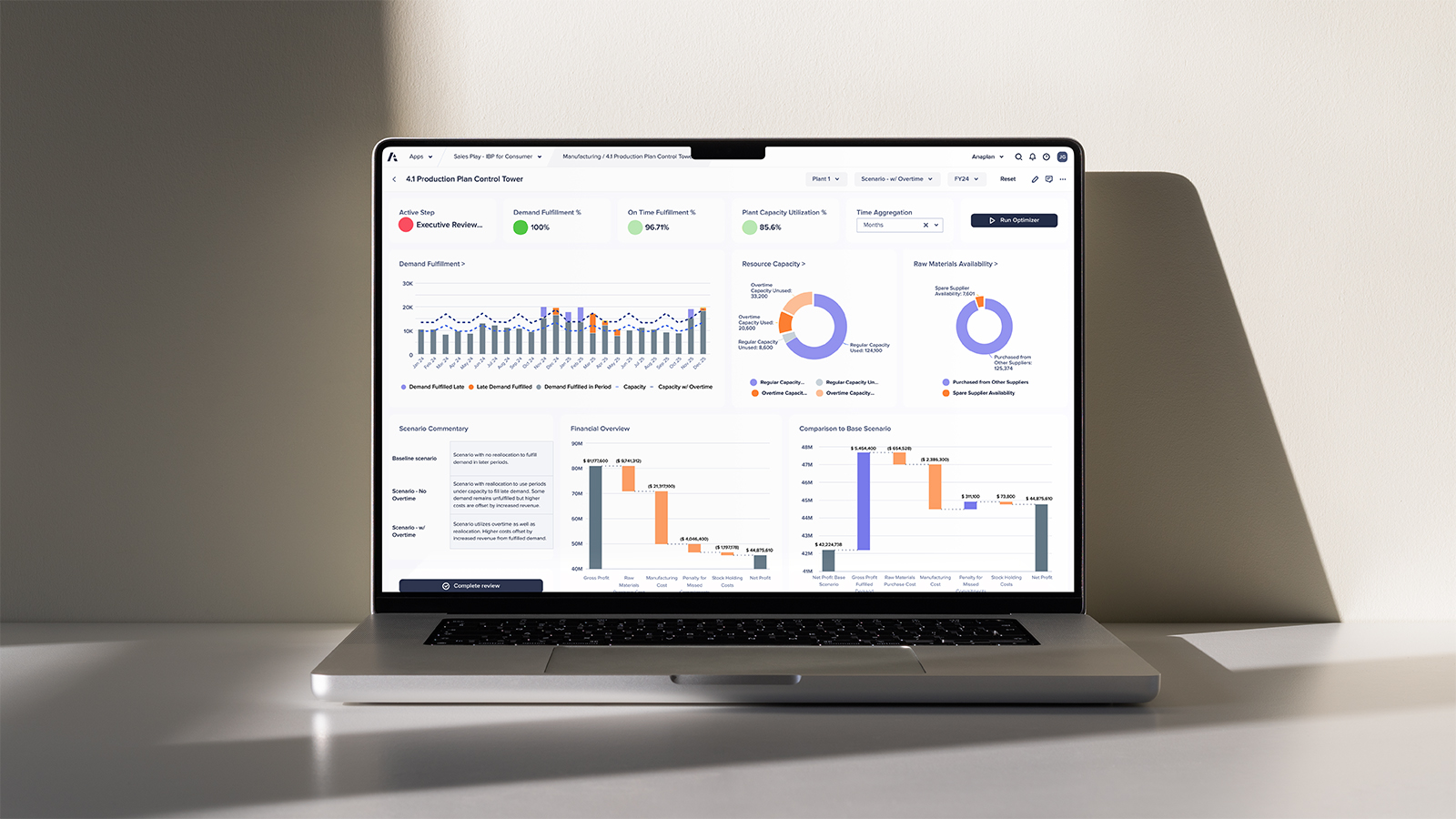Anaplan Connect 2026 is coming to a city near you
Blog
Elevate your impact.
Optimize your decisions.
Your source for trusted insights, industry expertise, and best-practice
guidance to solve your biggest challenges.
Choose your area of interest

Announcing the 2025–2026 Anaplan Partner of the Year Awards

Is M&A activity outpacing your accounting capacity?

Stop flying blind: Take the guesswork out of subscription revenue forecasting

Why the modern CFO must be more than just a scorekeeper

How 80/20 tagging helps allocators hit their targets with less work

What makes an AI agent “real” — and what can it do for you?
Discover the platform industry leaders trust. Be the next.
Organizations around the world rely on Anaplan to build a modern, connected enterprise. Shouldn’t you?

 `
`
 `
`
 `
`
 `
`